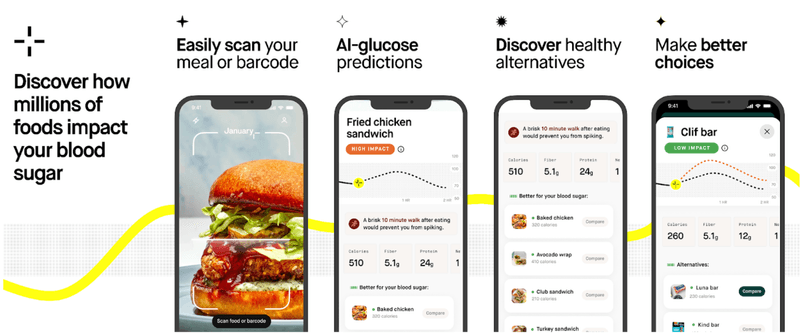Mars leverages AI app predicting blood sugar responses to food
Acquiring data about consumers’ blood sugar responses to certain foods is an expensive effort, but it is becoming much cheaper and easier through artificial intelligence (AI).

A collaboration between Mars, Inc., McLean, Va., and January AI, Menlo Park, Calif., is designed to unlock valuable information to guide product formulation and positively affect public health at the same time.
The project will use January AI’s tools and the company’s R&D capabilities to predict responses to a wide range of different foods and formulations, explained Darren Logan, PhD, vice president of research, Mars.
January AI’s app, which is free to download, shows the blood sugar impact of different foods without the use of sensors or a continuous glucose monitoring (CGM) device, which can be costly.
For those who are prediabetic or who already have diabetes, it means being able to identify trends and patterns in the data and use them to determine healthier food options.
Noosheen Hashemi, founder and chief executive officer, January AI said that 138 million people in the United States are either prediabetic or diabetic, and since food has the largest impact on blood sugar, this AI-driven approach could benefit both consumers and food manufacturers looking to develop products without sugar or with much less of it.
Mars has supported an added sugar declaration on its products in the United States and greater consumer transparency in a variety of markets, Logan said. He added the company has been exploring AI applications in food and health for both people and pets for several years.
Mars also is using AI to develop novel ingredients, Logan said. An example is the Mars Advanced Research Institute, where AI is speeding up the discovery of plant-based ingredients so the company can develop products meeting the growing consumer demand for healthier foods, beverages and dietary supplements.
January AI has worked with other consumer packaged goods (CPG) companies, including Nestle, that are using AI-generated data to show how products will impact glucose levels and potentially help develop new ones more quickly and cheaply.
By combining AI-generated data and creative product development, the ultimate target is to improve individual and public health.
Food Business News
Related news
Nestle USA adds prebiotic beverages
🎧 Hallgasd a cikket: Lejátszás Szünet Folytatás Leállítás Nyelv: Auto…
Read more >Related news
Nestlé to sell remaining ice-cream assets but commits to Froneri venture
🎧 Hallgasd a cikket: Lejátszás Szünet Folytatás Leállítás Nyelv: Auto…
Read more >40 secure jobs, sustainable solutions – new BURGER KING® in Csepel
🎧 Hallgasd a cikket: Lejátszás Szünet Folytatás Leállítás Nyelv: Auto…
Read more >






